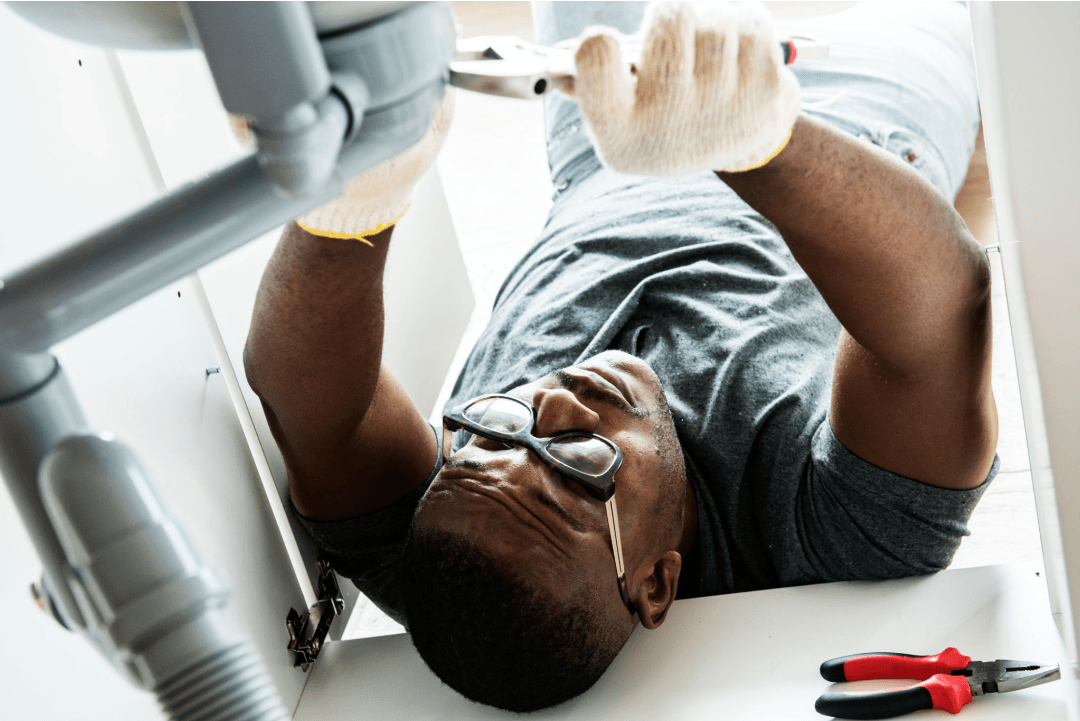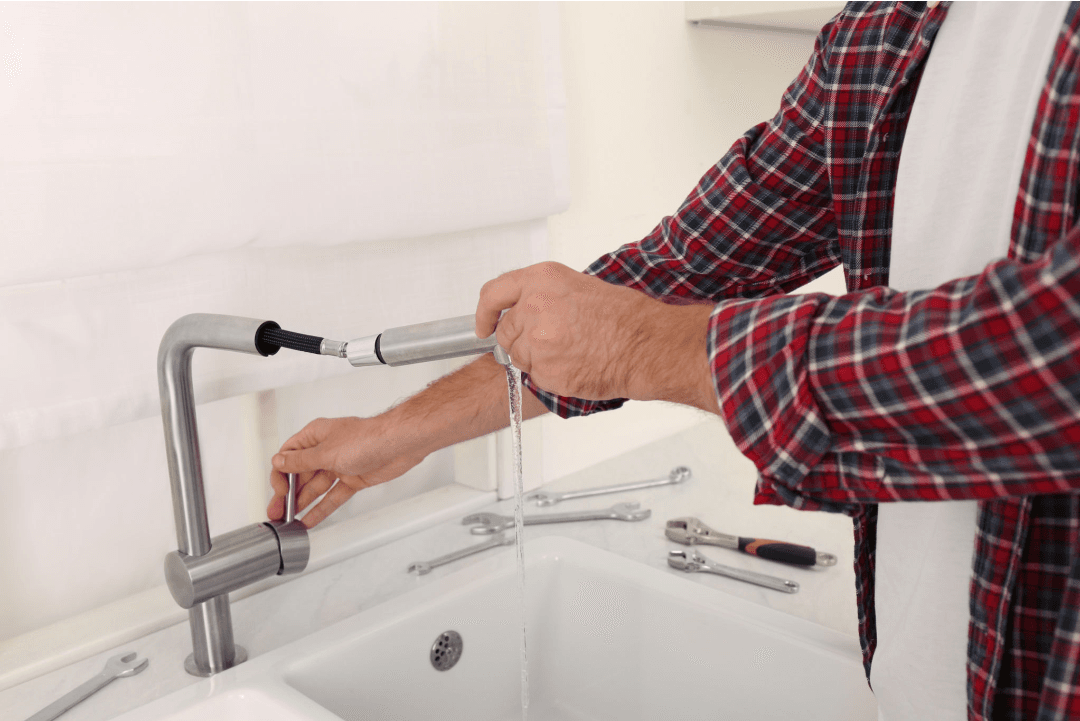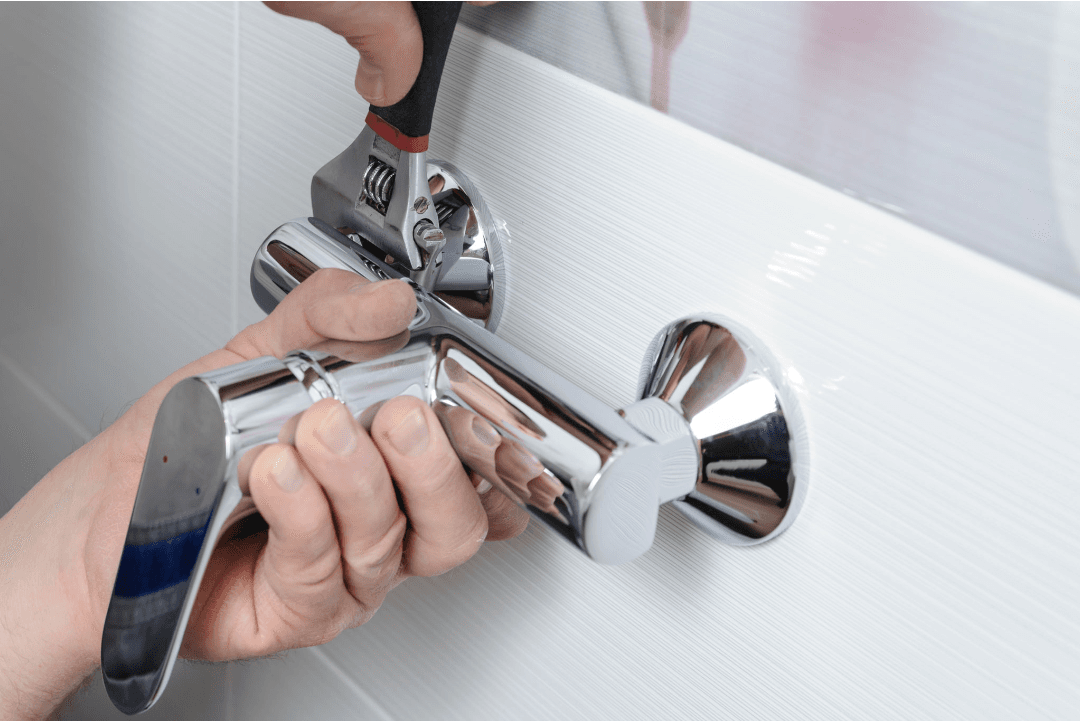In an era of DIY enthusiasm and online tutorials, many homeowners are tempted to tackle plumbing issues on their own. DIY plumbing repairs can seem like an attractive option, promising cost savings and a sense of accomplishment. However, weighing the pros and cons before taking matters into your own hands is crucial.
This article will explain the advantages and drawbacks of DIY plumbing repairs, helping you make an informed decision about when to roll up your sleeves and when to call in professionals like Service by Scott. We’ll also provide tips for successful DIY projects and highlight situations where expert intervention is necessary.

The Pros of DIY Plumbing Repairs
DIY plumbing repairs can offer several benefits for homeowners willing to invest time and effort. Let’s explore the main advantages of tackling plumbing issues on your own.
Cost Savings
One of the most significant advantages of DIY plumbing repairs is the potential for cost savings. By handling minor issues yourself, you can avoid service fees and labor costs associated with professional plumbers. Materials for DIY plumbing repairs are often affordable and readily available at local hardware stores, making it an attractive option for budget-conscious homeowners.
Skill Development
Engaging in DIY plumbing repairs provides an excellent opportunity to develop new skills and increase your understanding of your home’s plumbing system. As you complete projects, you’ll gain confidence in your abilities and become more self-reliant. This knowledge can be valuable for future maintenance and quick fixes, potentially saving you time and money in the long run.
Immediate Action
When plumbing issues arise, DIY repairs allow you to address the problem immediately. Instead of waiting for a professional plumber to become available, you can take action right away, potentially preventing further damage or inconvenience. This immediate response can be particularly beneficial for minor leaks or clogs that don’t require extensive expertise.
The Cons of DIY Plumbing Repairs
While DIY plumbing repairs have their advantages, it’s essential to consider the potential drawbacks before embarking on a project. Let’s examine the main cons of tackling plumbing issues without professional help.
Risk of Mistakes
One of the biggest risks associated with DIY plumbing repairs is the potential for mistakes. Without proper training and experience, you may inadvertently cause more damage or fail to address the root of the problem. These errors can lead to costly repairs down the line and may even compromise the integrity of your home’s plumbing system.
Time and Effort
DIY plumbing repairs often require a significant investment of time and effort. What starts as a simple fix can quickly become a complex and time-consuming project, especially if you encounter unexpected issues. For many homeowners, the time spent on DIY plumbing repairs could be better allocated to other priorities or professional pursuits.
Lack of Proper Tools and Equipment
Professional plumbers have access to specialized tools and equipment that may not be readily available to the average homeowner. Attempting DIY plumbing repairs without the proper tools can lead to ineffective solutions or even cause damage to your plumbing fixtures. The cost of purchasing or renting these tools may offset any potential savings from DIY repairs.

When to Consider DIY Plumbing
While not all plumbing issues are suitable for DIY repairs, there are certain situations where a hands-on approach can be appropriate. Let’s explore when you might consider tackling plumbing problems yourself.
Minor Repairs
DIY plumbing repairs can be a good option for minor issues that don’t require extensive knowledge or specialized tools. Simple tasks such as fixing a leaky faucet, replacing a showerhead, or unclogging a drain can often be handled by homeowners with basic DIY skills. These projects typically have a low risk of causing further damage if done correctly.
Basic Maintenance Tasks
Routine maintenance tasks are another area where DIY plumbing repairs can be beneficial. Activities such as cleaning aerators, checking for leaks, and inspecting visible pipes can help prevent more serious issues from developing. By staying proactive with basic maintenance, you can potentially avoid costly repairs in the future.
When to Call a Professional Plumber
While DIY plumbing repairs have their place, there are many situations where it’s best to leave the job to the experts. Recognizing when to call a professional is crucial for maintaining the safety and integrity of your home’s plumbing system.
Complex Issues
When faced with complex plumbing problems, it’s wise to seek professional help from a reputable plumber, such as Service by Scott. Issues such as sewer line repairs, water heater replacements, or extensive pipe replacements require specialized knowledge and equipment. Attempting DIY plumbing repairs in these situations can lead to costly mistakes and potential safety hazards.
Safety Concerns
Any plumbing issue that poses a safety risk should be handled by a professional. This includes gas line repairs, major water leaks that could cause structural damage, or any situation where electrical components are involved. Professional plumbers have the training and equipment to address these hazards safely and effectively.
Legal Requirements
Certain plumbing projects may require permits or need to meet specific building codes. In these cases, DIY plumbing repairs are not advisable, as failing to comply with legal requirements can result in fines or complications when selling your home. Professional plumbers at Service by Scott are familiar with local regulations and can ensure work is up to code.

Tips for Successful DIY Plumbing Repairs
If you decide to tackle DIY plumbing repairs, following these tips can help increase your chances of success and minimize the risk of problems.
Research and Preparation
Before starting any DIY plumbing repairs, thoroughly research the problem and the required steps to fix it. Consult reputable sources, watch tutorial videos, and ensure you understand the process completely. Gather all necessary tools and materials before beginning the project to avoid interruptions.
Safety First
Always prioritize safety when attempting DIY plumbing repairs. Turn off the water supply before starting any work, wear appropriate protective gear, and be cautious of potential hazards such as sharp edges or slippery surfaces. If you encounter any unexpected issues or feel unsure about your ability to complete the repair safely, don’t hesitate to call Service by Scott.
Know Your Limits
One of the most important aspects of successful DIY plumbing repairs is knowing your limitations. Be honest about your skills and experience, and don’t attempt projects that are beyond your capabilities. If a repair seems too complex or risky, it’s better to contact a professional plumber like Service by Scott to ensure the job is done correctly and safely.
Conclusion
DIY plumbing repairs can be a rewarding and cost-effective option for minor issues and basic maintenance tasks. However, it’s crucial to weigh the pros and cons carefully before deciding to tackle a plumbing problem on your own. While DIY approaches can save money and provide valuable learning experiences, they also come with risks of mistakes, time investment, and potential safety hazards.
For complex issues, safety concerns, or projects requiring specialized knowledge and tools, it’s always best to call a professional plumber. Service by Scott, with over 30 years of experience serving Tyler County and surrounding areas, is equipped to handle all your plumbing needs, from minor repairs to major installations. Don’t hesitate to contact Service by Scott for expert assistance, ensuring your plumbing system remains in top condition and your home stays safe and comfortable.
FAQs
What are the most common DIY plumbing mistakes?
Common mistakes include overtightening connections, using the wrong tools, neglecting to turn off the water supply, and attempting repairs beyond one’s skill level.
How much money can I save by doing my own plumbing repairs?
Savings vary depending on the project, but simple repairs like fixing a leaky faucet or unclogging a drain can save $50-$200 in service fees.
What basic tools do I need for DIY plumbing?
Essential tools include an adjustable wrench, pliers, a plunger, a pipe wrench, and a plumber’s tape. More specialized tools may be needed for specific repairs.
Are there any plumbing tasks that should never be DIY?
Tasks involving gas lines, major sewer line repairs, and electrical components should always be left to professionals due to safety risks and legal requirements.
How do I know if a plumbing issue is beyond my skills?
If you’re unsure about the cause of the problem, don’t have the necessary tools, or the repair involves complex systems or potential safety hazards, it’s best to call a professional plumber like Service by Scott.

